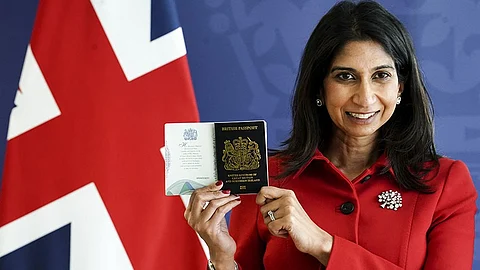

“British citizenship is a privilege. Those who commit crimes shouldn’t be able to enjoy the breadth of rights citizenship brings, including holding a British passport, voting and accessing free medical care from the NHS,” said UK Home Secretary Suella Braverman as she announced a crackdown on citizenship rules effective this week.
“I am cracking down on abuse of the UK’s immigration and nationality system, by introducing a tougher threshold so that serious criminals cannot gain British citizenship. This is the fair and right thing to do for our country,” the British Indian minister added.
Toughened-up good character rules will mean the criminality threshold for British citizenship is in line with the government’s Immigration Rules, the UK Home Office said. Under the stricter rules in force now, serious criminals will be blocked from claiming British citizenship regardless of when or where the crime took place.
The government crackdown comes with strengthened rules applying to new applications from anyone who has received at least a 12-month prison sentence. This reaffirms the government’s commitment to protecting UK borders and ensuring no one with a criminal record can abuse the British immigration and nationality system, the Home Office said.
The updated rules are stricter and more specific on so-called “good character” requirements, which are a key condition to be granted British citizenship, and look at whether an individual has observed UK law as well as shown respect for the rights and freedoms of British citizens. The requirements include factors such as criminal convictions, immigration offending and serious behaviour like war crimes, terrorism or genocide.
The changes remove the previous rules where some criminals could be granted British citizenship after a prescribed number of years had passed since the end of their sentence – regardless of the type of crime or where it was committed.
MORE LIKE THIS…
However, the Home Office said there will be some exceptions to the new rules, which will be assessed on a case-by-case basis, for example if someone has mitigating circumstances that support an exceptional grant. Cases like this could include someone who committed a minor offence a long time ago but has made sufficient, positive changes that they are now considered to be of good character.